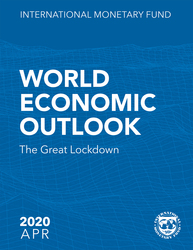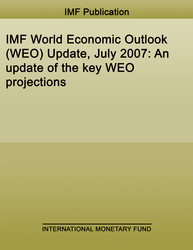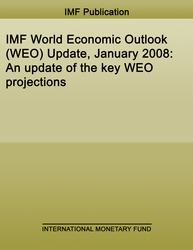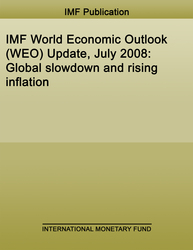
World Economic Outlook, April 2020: The Great Lockdown
This edition of the World Economic Outlook provides an up-to-the-moment analysis and projections for the global economy in the context of the COVID-19 pandemic.
READ MORE...
Volume/Issue:
Volume 2020
Issue 001
Publication date: April 2020
ISBN: 9781513539744
$79.00
Add to Cart by clicking price of the language and format you'd like to purchase
Available Languages and Formats
| Arabic | |||
| Chinese | |||
| English | |||
| French | |||
| Japanese | |||
| Spanish | |||
| Russian |
Prices in red indicate formats that are not yet available but are forthcoming.
Topics covered in this book
This title contains information about the following subjects.
Click on a subject if you would like to see other titles with the same subjects.
Finance , Economics- Macroeconomics , Money and Monetary Policy , Public Finance , Emigration and Immigration , WEO , CCDFEF , monetary policy , emerging market , economy , prudential regulation , policy package , IMF staff , policy focus , Migration , Emerging and frontier financial markets , Fiscal stimulus , Interest rate floor , Global , Sub-Saharan Africa , Middle East and Central Asia , Middle East , Caribbean
Also of interest
Summary
The COVID-19 pandemic is inflicting high and rising human costs worldwide, and the necessary protection measures are severely impacting economic activity. As a result of the pandemic, the global economy is projected to contract sharply by –3 percent in 2020, much worse than during the 2008–09 financial crisis. In a baseline scenario--which assumes that the pandemic fades in the second half of 2020 and containment efforts can be gradually unwound--the global economy is projected to grow by 5.8 percent in 2021 as economic activity normalizes, helped by policy support. The risks for even more severe outcomes, however, are substantial. Effective policies are essential to forestall the possibility of worse outcomes, and the necessary measures to reduce contagion and protect lives are an important investment in long-term human and economic health. Because the economic fallout is acute in specific sectors, policymakers will need to implement substantial targeted fiscal, monetary, and financial market measures to support affected households and businesses domestically. And internationally, strong multilateral cooperation is essential to overcome the effects of the pandemic, including to help financially constrained countries facing twin health and funding shocks, and for channeling aid to countries with weak health care systems.
Copyright © 2010 - 2026
Powered by:
AIDC



